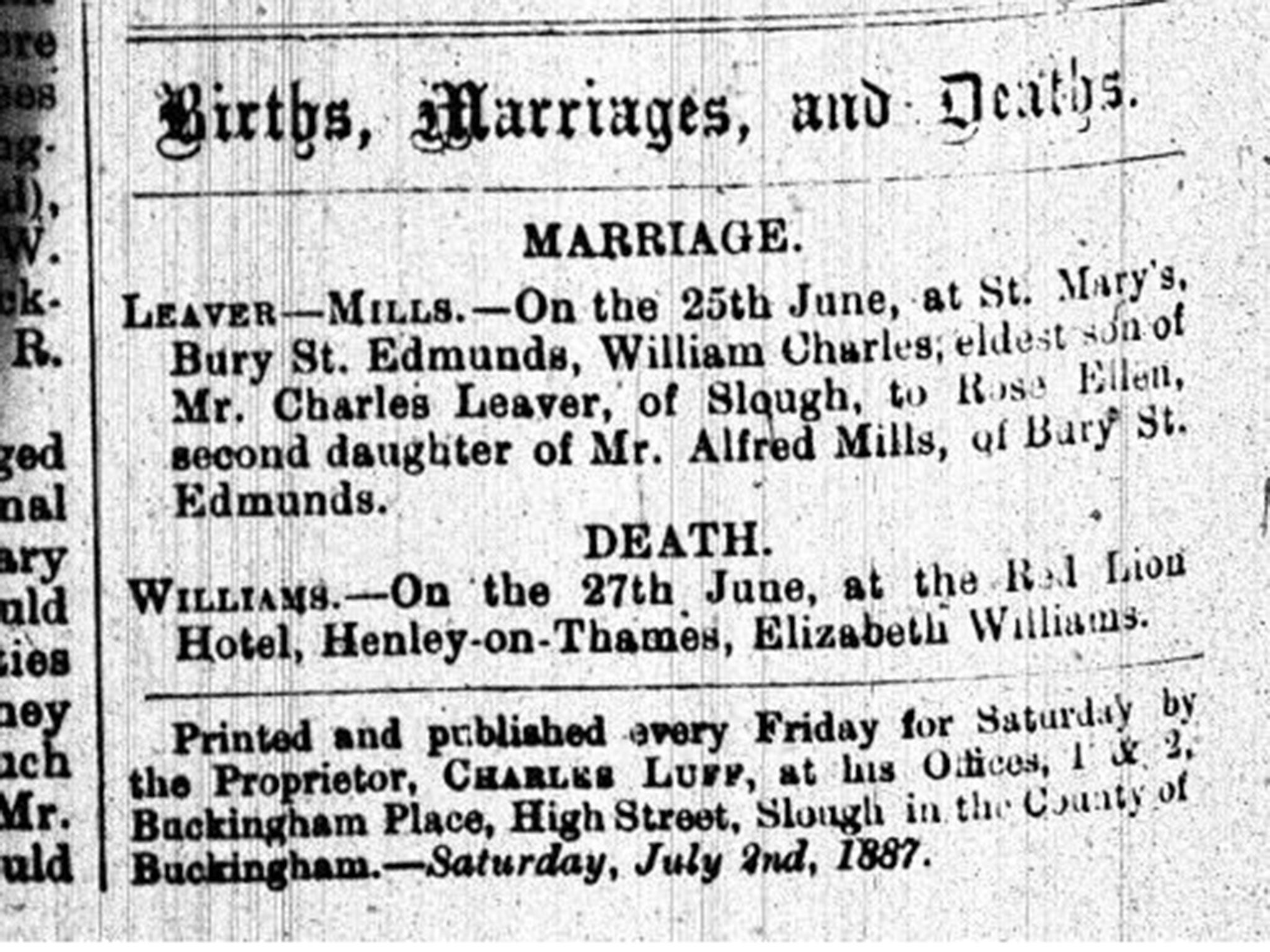Facebook: The new hatched, matched and dispatched
Family events used to be marked in the personal columns. But now Facebook has usurped the ‘Births, Deaths and Marriages’ announcements

Last week, having met someone she liked, a friend of mine decided to change her “single” status on Facebook. The reason I know this is because I received an automated email from Facebook telling me so.
This clarion call, potentially heralding a burgeoning romance, was blasted out to her friends far louder than she ever expected; soon she was saddled with the administrative burden of dozens of messages of congratulation, many of which felt out of proportion to the significance of the event. Thanks to Facebook, this is how the important moments of our lives now tend to be marked; pixels on a computer screen, events on a timeline, acknowledged by comments from friends, whether it’s a change of job, an engagement or the all-clear from a health scare. Who “likes” this? Thumbs up?
It didn’t used to be that way, of course. Newspaper announcements of births, marriages and deaths were, at one time, the only way to find out precisely who was doing what and to whom, unless you had been notified directly. Our lives and our relationships now seem too complex for the limited constraints of newspaper announcements, and placed alongside the fast-moving world of social media, they seem like quaint relics of a simpler time. The very idea that we would learn about someone’s wedding from the classified section of a newspaper – rather than a tsunami of Facebook photos of people dressed up smartly and getting leathered in a marquee – seems faintly absurd. Indeed, the main function of such announcements placed in national newspapers seems to be to provide Private Eye with fodder for its occasionally over-harsh Pseud’s Corner column (eg, “To Gilly and Rupert, a daughter, Elektra Esmeralda, a little sister for Dorothy, Wulfstan and Cleopatra”).
The Times even hints at the exclusivity of the service on its website (“the repository of many luminaries’ beginnings, betrothals and bereavements”) but some people still want the biggest events of their lives to appear in a journal of public record, imbued with the importance associated with print, even if that importance is declining.
“Things have changed over the past four years, definitely,” says Lezley Hooton, of The Daily Telegraph. “A decline. But there’s still a need for it – we fill a page every day. Deaths form the largest proportion, as it’s something that older people ask for in their wills, but engagements are popular, too. Particularly in the new year. And particularly among the well-off.”
Many local newspaper announcements, once handled in-house, have now been centralised; that data is often collated and blasted back out on to the internet via companies such as iAnnounce (“Over 4,105,000 obituaries, death notices, wedding announcements and all other family announcements, from 410 newspapers, updated daily). This forms an extraordinary database of information that will have genealogists of the future frothing at the mouth with excitement. It seems that however our information is announced, its eventual destiny is ultimately the same: the bottomless pit of the internet.
A survey this week, conducted (for some mysterious reason) by Start-rite shoes, revealed that 20 per cent of mothers go online within 30 minutes of giving birth to provide friends and followers with news of their progeny. Last week, my friend Kellie gave birth to a daughter, Ramona; her pictures took nearly nine hours to appear on the Facebook page of her partner, Nick, but I was delighted when they did.
I asked her if she’d be putting the news in her local paper, the Leighton Buzzard Observer. “Hadn’t thought of that at all,” she said. “Birth announcements surely go: people you call [parents], text [close friends] then Facebook [everyone else].”
Not a bad plan. While there are many reasons to vent one’s spleen about social media, it’s hard to deny that, when it comes to being born, the Facebook announcement of your arrival is going to be more timely, more personal – more efficient, shall we say – than your parents placing a classified ad.
Join our commenting forum
Join thought-provoking conversations, follow other Independent readers and see their replies
Comments
Bookmark popover
Removed from bookmarks